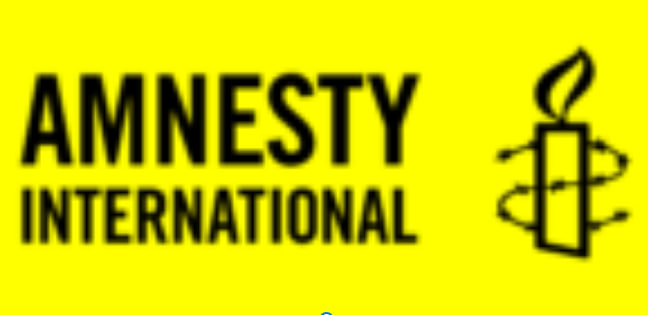
At least 10,000 people have died in military custody since the Boko Haram conflict in North-east Nigeria began, human rights group Amnesty International said on Thursday.
Amnesty International also accused Boko Haram terrorist group of killing thousands of civilians during attacks on towns and villages saying that “Boko Haram has committed war crimes and other serious violations of international humanitarian law.”
Speaking at a press conference in Maiduguri, capital of the terror-ravaged Borno state on Thursday, Amnesty International Nigeria Country Director, Isa Sunusi, reminded the government of the need for justice.
Sanusi said the war against Boko Haram would come to an end, once justice was served on people whose lives had been shattered by Boko Haram and the military.
He added that the human rightts group had filed a case before the International Court of Justice for alleged crimes against humanity in the Nigeria’s northeastern region.
Amnesty International said in a report documented in response to the military atrocities in its operations in the theatre that: “The Nigerian military has often treated anyone in, or coming out of, Boko Haram-controlled areas as, at minimum, a suspected Boko Haram member.
“Amnesty International has documented war crimes by government forces, including intentional attacks against the civilian population; indiscriminate attacks that have killed or injured civilians; extrajudicial executions, which also constitute the war crime of murder; torture; cruel treatment; rape; and sexual violence.
“In addition, Amnesty International believes that individuals in the Nigerian military may have committed the crimes against humanity of murder; extermination; imprisonment; torture; rape; enforced disappearance; and gender-based persecution, after having concluded in a 2015 report that the Nigerian military likely had a policy to attack a civilian population and had done so in a widespread and systematic nature.
“At least 10,000 people have died in military custody since the conflict in North-east Nigeria began.”
The 144-page report titled “Girl Survivors of Boko Haram and Military Abuses in North-East Nigeria,” and sent to reporters at the conference also accused Boko Haram of killing thousands of civilians during attacks on towns and villages, and carried out widespread abductions, especially of girls, boys and younger women.
“Attacks on schools, teachers and students, including their abduction, have been committed so as to prevent people, especially children, from receiving what Boko Haram considers a ‘Western’ education,” said the report.
“Throughout the conflict, Boko Haram has committed war crimes and other serious violations of international humanitarian law, including murder; attacks on civilians and civilian objects; indiscriminate attacks; disproportionate attacks; torture; cruel treatment; conscription (including through abductions) and use of child soldiers under the age of 15; attacks on buildings dedicated to education; pillage; sexual slavery; rape; and attacks on humanitarian workers.”
Amnesty International also said it had in 2015, in a series of reports, found that Boko Haram had an organisational policy to attack a civilian population and that this attack was systematic and widespread adding that the organisation be investigated for crimes against humanity including murder, enslavement, imprisonment, torture, rape, among other inhumane acts.
“Consequently, in a series of reports since 2015, Amnesty International has concluded that Boko Haram members should also be investigated for the crimes against humanity of murder; enslavement; imprisonment; torture; rape; sexual slavery; sexual violence; persecution; and forced marriage as other inhumane acts,” it said.
Sanusi also emphasised the need for government to rebuild the lives of girls and young women that suffered the atrocities of Boko Haram and the military.
The Amnesty representative said: “We believe that, if there is anything the government has been doing, it is rehabilitation, and I doubt if that rehabilitation involves women. Why are they excluded?
“Beside that, our research shows that the experience of women is very unique. For example, there are many girls who were abducted or trafficked and at the end of the day ended up with Boko Haram and they were forced into sex slavery, and many of them had kids with the insurgents.”
“When they escaped from the Boko Haram enclave, they ended up in the hands of the military, and in some cases they also experienced another round of atrocities. So, the girls and young women in the North East suffered horrific abuses in Boko Haram captivity and many survivors arbitrarily detained and subsequently neglected by the Nigerian authorities”.
“In fact, in the course of our research we discovered that those girls that tried to have contraceptives were severely punished by the insurgents. These are the things that we should never forget and we believe that the government should do something.
“Based on our research, despite some family unification efforts, the Nigerian government has largely failed to address their physical and psychological recovery and social reintegration as required by the convention for the rights of the child and the African charter on the right and welfare of the child, of which Nigeria is a party.”
“This neglect is a serious issue which we are here to tell the government to address. We are calling on the Nigerian government to do the right thing and one of the right things they have to do is to make sure that they investigate and bring to justice all those accused of putting these girls through these atrocities.”
Follow the KOIKIMEDIA NEWS 🗞️ CHANNEL on WhatsApp: https://whatsapp.com/channel/0029VatGuwaGufJ1s73IEk0N
